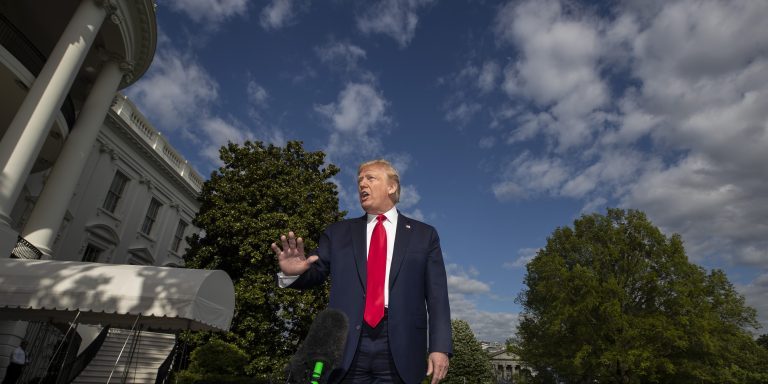INTELBRIEF
May 4, 2020
IntelBrief: U.S. Pushes To Extend Iran Arms Ban

- The Trump administration is at odds with other powers, particularly Russia and China, in its insistence on extending a United Nations ban on arms transfers to or from Iran.
- A rift within the U.N. Security Council is assured if the United States implements its assertion that it can trigger a snap-back of all U.N. sanctions lifted under the deal.
- Even if U.S. strategy at the United Nations succeeds, Russia and China are likely to sell Iran new conventional arms when the U.N. ban expires in October 2020.
- U.S. efforts to extend the ban will likely leave the United States even more isolated on Iran policy.
The landmark July 2015 nuclear agreement negotiated between Iran and six powers (United States, Britain, France, Germany, Russia, and China) was formally endorsed in U.N. Security Council Resolution 2231. Resolution 2231 lifted all U.N. sanctions contained in previous resolutions on Iran, but an annex extended, until October 18, 2020, provisions of existing resolutions that ban the sale of major combat systems to Iran and prohibit Iran from exporting arms. The Trump administration withdrew from the nuclear agreement in 2018, arguing that its provisions expire and do not address all the various threats posed by Iran. As part of its campaign of ‘maximum pressure’ against Iran, the Trump administration insists that the U.N. arms transfer ban be extended. In early 2020, the United States circulated a Security Council draft resolution to that effect amongst its major European allies France, the United Kingdom, and Germany. U.S. allies support an extension, but Russia and China, which seek to sell combat aircraft, tanks, and warships to Iran, have publicly rejected extending the ban. Both Moscow and Beijing wield veto power on the U.N. Security Council.
As part of its effort to compel the Security Council to enact an extension of the arms ban, the Trump administration has threatened, and appears set to take, extraordinary diplomatic measures. On April 29, Secretary of State Mike Pompeo told journalists: ‘We will work with the U.N. Security Council to extend that prohibition on those arms sales and then in the event we can’t get anyone else to act, the United States is evaluating every possibility about how we might do that.’ He spoke two days after a New York Times article reported that, should the Council refuse to extend the arms ban, the United States would trigger a provision of Security Council Resolution 2231 that re-imposes all U.N. sanctions, including the ban. On April 30, Secretary Pompeo’s leading Iran policy aide, Ambassador Brian Hook, told journalists that a ‘plain reading’ of Resolution 2231 shows that the United States remains a ‘participant’ in the Iran nuclear deal for the purposes of enforcement. According to the Resolution, a participant’s assertion that Iran is in violation of the accord would trigger an automatic draft resolution keeping sanctions relief in effect. A U.S. veto of this resolution would re-impose all U.N. sanctions, and, as a consequence, fulfill the Trump administration’s apparent unstated goal of ending the 2015 nuclear deal entirely.
Diplomats from Russia, China, and Europe have reacted harshly to these assertions, indicating that any move by Washington to trigger a full sanctions snap-back will ignite a rift in the Security Council. They argue that the context of Resolution 2231 clearly implies that only active participants in the nuclear deal can trigger the snap-back mechanism. European diplomats, who otherwise support extending the ban, reportedly informed the Trump administration that ‘either you are in or you are out’ of the nuclear deal and that the United States cannot legitimately trigger a broader U.N. sanctions snap-back. The European position indicates that U.S. allies’ disagreements with the Trump administration’s decision to exit the nuclear accord and institute a policy of ‘maximum pressure’ on Iran are far from abating .
Russia and China will almost certainly deny the legitimacy of this U.S. process of reinstating U.N. sanctions and will likely proceed with their long-planned arms sales to Iran, respectively. The Trump administration would, at that point, perhaps look to fall back on the U.S. sanctions laws that penalize countries and entities that sell arms to Iran. However, the effectiveness of U.S. sanctions in deterring Russia and China from new Iran sales is doubtful. Iran will react to the dissolution of the nuclear deal with additional expansions of its nuclear program, and the United States would have succeeded in accomplishing none of its goals – but only further isolating itself on Iran policy.
.
For tailored research and analysis, please contact: info@thesoufancenter.org